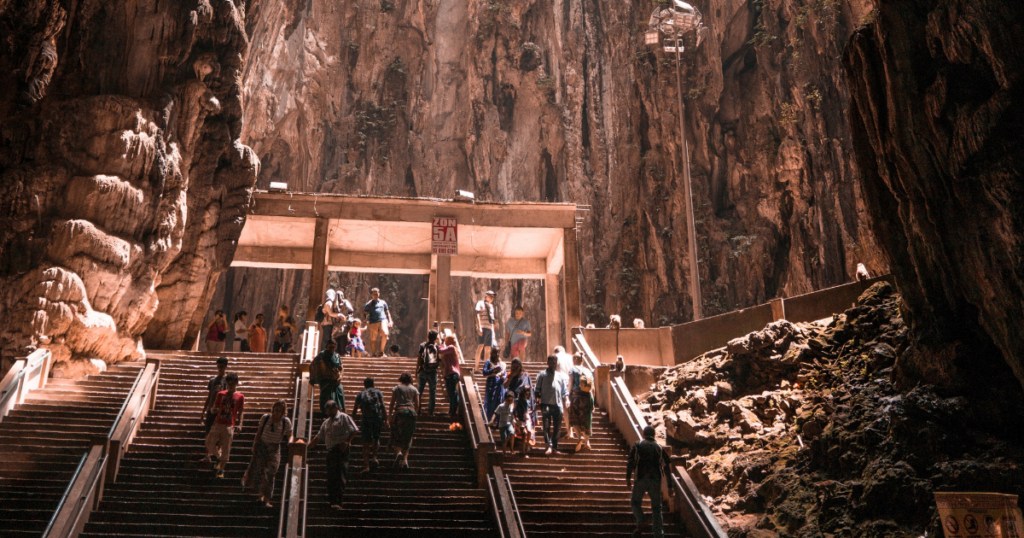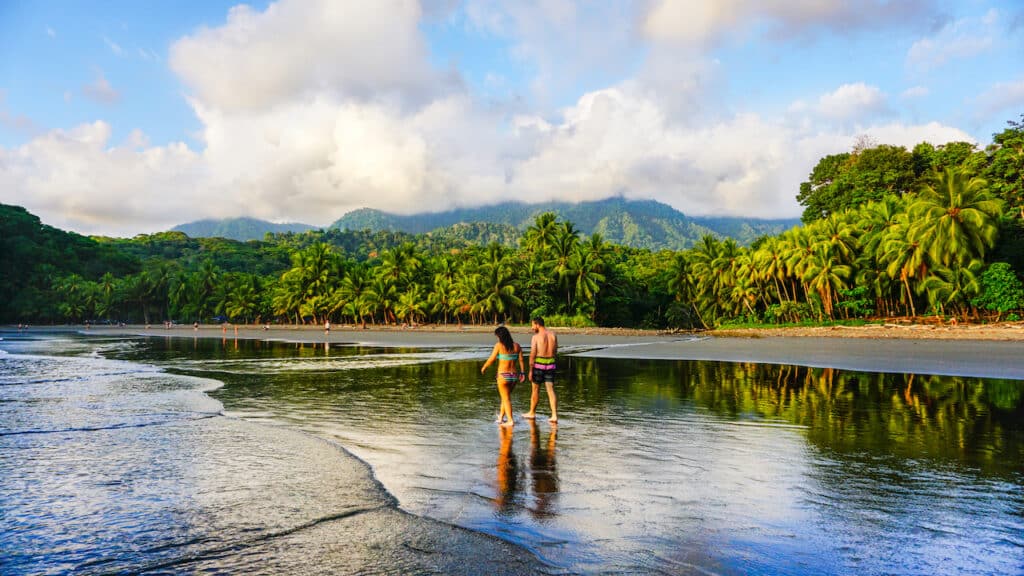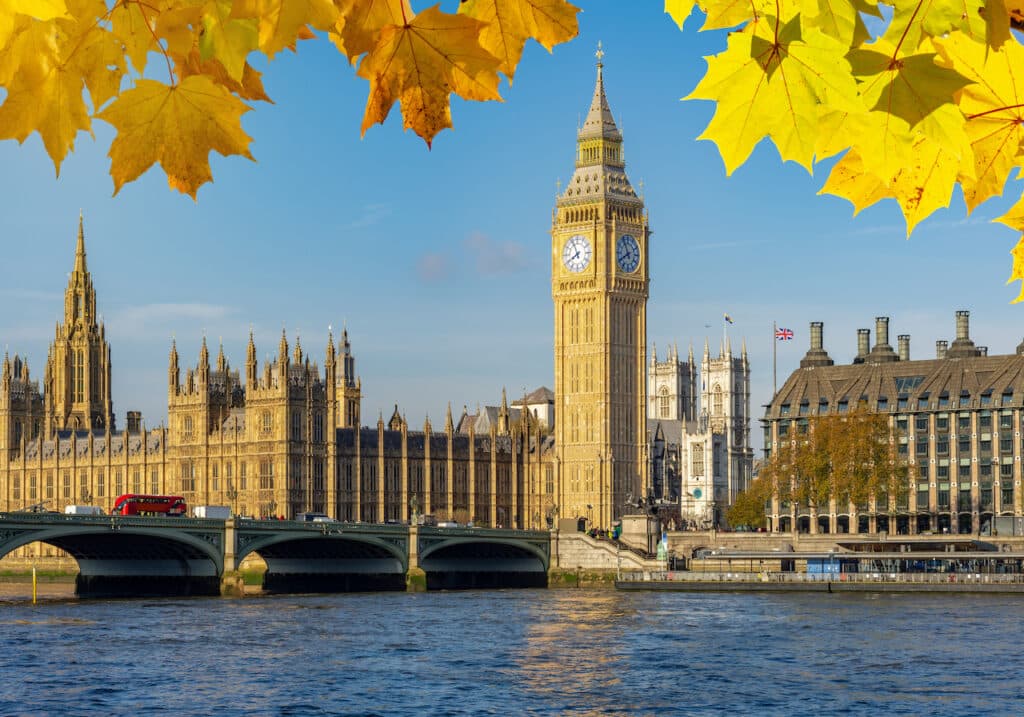If you’re a remote worker with dreams of relocating to a stunning and budget-friendly destination in Southeast Asia, the Malaysia digital nomad visa might be your golden ticket. Considered by many as the easiest digital nomad visa to secure in all of Asia, Malaysia boasts both affordability and a reputation as one of the top expat-friendly countries globally. With a slew of benefits and comprehensive support for visa holders, it’s an enticing prospect, to say the least.
But what are the eligibility criteria for the Malaysian digital nomad visa? How can you navigate the application process? And what’s daily life like in this captivating country? We’ll unravel all these queries and more in the sections below.
📋 Key Updates for The Malaysia Digital Nomad Visa in 2025
- Malaysia’s digital nomad visa, one of the easiest in Asia to secure, caters primarily to IT, digital marketing, and content creation professionals. It is affordable, allows immediate family to join, and offers perks like discounts on accommodations, co-working spaces, and local services.
- The DE Rantau Nomad Pass eligibility was broadened in June 2024 to include professional managerial roles such as founders, CEOs, accountants, legal professionals, and writers. This expansion aims to attract a more diverse pool of remote workers and boost Malaysia’s appeal as a top digital nomad destination.
- Residents (staying 182+ days) are taxed progressively at rates from 1% to 30%, while non-residents face a flat 30% tax rate. However, foreign-sourced income is generally exempt from Malaysian taxes unless remitted into the country.
- US expats can leverage provisions like the Foreign Earned Income Exclusion (FEIE) and Foreign Tax Credit (FTC) to avoid double taxation, simplifying financial obligations. Malaysia’s territorial tax system remains favorable for digital nomads by taxing only locally sourced income.
Snapshot of expat life in Malaysia
- Population: 33.5 million
- Capital city: Kuala Lumpur
- Currency: Malaysian Ringgit
- Official language(s): Malay
- Approximate number of American expats: Over 30,000
The Malaysia nomad visa, AKA the DE Rantau Nomad Pass
What sets Malaysia’s digital nomad visa apart from the rest is its generous package of benefits. Beyond granting you the freedom to live and work in this vibrant country, the DE Rantau Nomad Pass opens doors to a wide array of enticing perks. The Malaysian government has collaborated with various businesses to provide pass holders access to “nomad-ready hubs” and a collection of meticulously curated services and facilities. This encompasses exclusive offers and discounts on accommodation, co-working spaces, gourmet dining deliveries, immersive tours, and much more.
Malaysia digital nomad visa targets digital marketers, IT professionals, and content creators
Launched in October of 2022, Malaysia’s DE Rantau Nomad Pass — commonly called the digital nomad visa — is tailored to attract individuals thriving in the digital and IT domains.
This includes digital freelancers, independent contractors, and remote workers in IT and digital professions, such as software engineers and backend engineers, as well as those who work in:
- UX/UI
- Cloud technologies
- Cybersecurity
- Blockchain technology
- AI
- Machine learning
- Data-related fields
- Digital marketing
- Digital creative content
- Digital content development
Requirements and process to become a digital nomad in Malaysia
Looking to make Malaysia your next digital nomad destination? Here’s what you need to know to secure the DE Rantau Nomad Pass:
Application eligibility
To be eligible for Malaysia’s digital nomad visa, you must:
- Be able to work remotely in another country in one of the fields listed above
- Be at least 18 years old
- Earn at least $24,000 USD per year
Permitted activities and work restrictions
Malaysia’s digital nomad visa holders are allowed to reside and work in peninsular Malaysia. Additionally, they can bring immediate family members, such as spouses, common-law partners, and minor or disabled children/stepchildren. However, it’s important to note the following restrictions:
- The DE Rantau Nomad Pass is valid only for stays in Peninsular Malaysia. Travel to Sabah and Sarawak requires a separate tourist visa.
- Dependents are not eligible for work permits in Malaysia.
- Registering dependent children in local schools can be challenging due to varying requirements. In such cases, international schools often provide the best education solution for families.
Application materials
The necessary materials for applying for the Malaysia digital nomad visa include:
- A valid passport with a minimum of 14 months of validity after the initial application and at least six blank pages.
- Your CV.
- The last three months of your bank statements.
- The last three months of your income statements or tax returns.
- The last three months of your payslips (applicable to remote employees).
- Either a valid project contract lasting at least three months (for freelancers) or an employment contract with a non-Malaysian employer lasting at least three months (for remote employees).
- A personal bond document.
- A completed and notarized letter of good conduct.
- Higher education certificates.
- A medical insurance enrollment certificate for both yourself and any dependents accompanying you.
- Inland Revenue Board of Malaysia tax registration slip.2
The application process
All in all, the application for the digital nomad visa in Malaysia will look something like this:
- Gather the required documents outlined in the “application materials” section. Ensure all documents are in English, saved as PDFs, and do not exceed 20 MB in size.
- Register & complete the online application form.
- Upload your necessary documents as per the specifications.
- Pay your application fees, which include:
- RM1,060 (~$226)* for the main applicant
- RM530 (~$113)* for each dependent
- An immigration pass fee for each applicant of RM90 (~$19) for 3 months or RM360 (~$77) for a full year
- A security bond of RM2,000 (~$426), unless you can find a visa sponsor
- Await approval; visa applications typically take six to eight weeks to process.
- Based on your acceptance letter, apply for an eVisa or visit your designated embassy or consulate.
- Collect your pass and prepare for your journey to Malaysia.
*Fee subject to SST tax of 6%
Visa duration
Once granted, the visa will last between 3 months and 1 year. Upon expiration, you can renew the digital nomad visa once more for a maximum stay of 24 months.
Moving to Malaysia
As you prepare for this journey, there are some key steps and considerations to make your transition into life in this captivating Southeast Asian country as smooth as possible.
Your potential pre-move checklist
Before making the leap to becoming a digital nomad in Malaysia, make sure you cross the following off of your to-do list:
- Set up a doctor’s appointment to get any vaccines or medications you might need
- Buy tickets for your flights both into and out of Malaysia
- Book accommodations for your arrival
- Research what to bring, create a list, and pack your bags
- Flag your travel plans to your bank so they don’t mark purchases abroad as suspicious
- Set up a forwarding address for your mail, if necessary
- Connect with other digital nomads in Malaysia for advice on sites like Reddit or Facebook
💡 Pro tip:
Consider connecting with a CPA specialized in US expat taxes prior to leaving; depending on your situation, a proactive tax planning approach could be a financially savvy move.
Where to live in Malaysia

There are many great places to live in Malaysia, but the following three locations stand out as top choices:
📍 Kuala Lampur
Kuala Lumpur, Malaysia’s capital, is a vibrant blend of modernity and tradition. Here, towering skyscrapers coexist with centuries-old temples, creating a unique and captivating atmosphere. The city’s multicultural population contributes to its diverse and welcoming vibe, with people from various backgrounds coming together to work, live, and explore. Whether you’re sampling street food, indulging in high-end shopping, or experiencing the vibrant nightlife, Kuala Lumpur offers endless entertainment options.
📍 Penang Island
For those who prefer island living, Penang is a dream destination. This serene island boasts a laid-back lifestyle while providing plenty of excitement. With beautiful beaches, lush rainforests, lively street markets, captivating murals, and frequent local festivals, Penang offers a perpetual sense of adventure and relaxation.
📍 Johor
Located in the southern part of Malaysia, Johor offers the best of both worlds: urban living and natural beauty. Johor Bahru, the capital city, exudes a trendy, dynamic energy, while the picturesque coastal towns provide peaceful retreats. Additionally, Johor’s proximity to the city-state of Singapore, just south of the border, makes it convenient for quick getaways, whether for a weekend escape or an extended stay.
Life in Malaysia as an expat
Beyond the realm of work, Malaysia offers an abundance of cultural treasures, natural wonders, and opportunities to connect with fellow nomads. Let’s delve into the enriching aspects of life in Malaysia and uncover the top experiences awaiting you on this vibrant Southeast Asian canvas.
5 things that should be on your Malaysia bucket list

Even if you stay in Malaysia for the full two years that the digital nomad visa allows, you’re unlikely to run out of things to do and places to explore. Among all the country has to offer, these five activities should take top priority:
- Batu Caves Exploration: Discover the Batu Caves, a network of caves and cave temples adorned with flora, fauna, and breathtaking natural formations.
- Gunung Berembun Cameron Highlands Hike: Embark on a hike in the Gunung Berembun Cameron Highlands for unparalleled views of the rainforest, a Hindu temple, scenic tea plantations, and more.
- Sepilok Orangutan Rehabilitation Center Visit: Get up close to these incredible primates in a safe and ethical manner by visiting the Sepilok Orangutan Rehabilitation Center.
- Perhentian Islands Adventure: Experience the pristine beauty of Malaysia’s most exquisite beaches on the Perhentian Islands.
- Melaka’s Architectural Marvels: Explore the wonders of Melaka, a historic port city renowned for its stunning architecture.
Digital nomad community in Malaysia: How to find your people
It’s normal to feel unsure and even a little lonely when you move overseas. Fortunately, Malaysia is bursting with opportunities to get out and meet new people — you’ll be making new friends in no time.
A few ideas to get you started:
- Move into a co-living space
- Work from a co-working space
- Stay in a social hostel
- Take classes (e.g. cooking, stand-up paddleboarding, batik bag painting, etc.)
- Attend events on Meetup & Couchsurfing
- Join local expat groups on Facebook
- Attend a language exchange or use a language exchange app
- Volunteer in your community
Understanding taxes as a digital nomad in Malaysia
Malaysia’s tax system can feel complex (and sometimes unclear), but let’s simplify it. To start, digital nomads in Malaysia fall into two categories:
- Tax Residents: If you spend 182 days or more in Malaysia during a tax year, you’re considered a tax resident. Residents pay taxes on their income, with rates ranging from 1% to 30% based on their earnings.
- Non-Residents: If you don’t meet the 182-day threshold, you’re a non-resident and subject to a flat 30% tax rate on any income earned in Malaysia.

Exemptions & clarifications
The government often exempts foreign-sourced income from taxation. Because of this, some sources claim that digital nomads will only be subject to taxation on Malaysian-sourced income.
One caveat, however, the DE Rantau Pass FAQs do not explicitly mention this. From their official website, however, one can seemingly glean that:
- Freelancers will receive a reduced tax rate on Malaysian-sourced income for the first 182 days of their stay.
- Remote employees will not have to pay taxes unless they stay in the country beyond 60 days.
Keep in mind that although Malaysia doesn’t have a tax treaty with the US, there are some tax provisions available to Americans living abroad that often eliminate the risk of double taxation entirely (more on that later).
VAT in Malaysia
Malaysia’s sales and service tax (SST) — the value-added/consumption tax on most goods and services — is typically 6%.
Do American digital nomads in Malaysia have to pay US taxes?
America’s tax system requires all citizens and permanent residents to file a federal tax return (provided that they meet the minimum income reporting threshold) regardless of where in the world they live and whether or not there’s a tax treaty in place. However, US citizens living abroad may not necessarily owe US taxes thanks to the following provisions.

Expat tax provisions for Americans filing US taxes in Malaysia
Moving abroad may complicate your taxes and can feel overwhelming to navigate. Fortunately, we’re here to break it down for you a bit. Below are some of the additional reporting obligations and tax breaks expats should read up on.
Foreign Earned Income Exclusion (FEIE)
The FEIE allows you to exclude a certain amount of foreign-earned income from taxation ($126,500 for tax year 2024 and $130,000 for tax year 2025).
To be eligible, you need to pass either the Physical Presence Test or Bona Fide Residence Test. If you qualify, you’re also eligible for the Foreign Housing Exclusion/Deduction, which allows you to write off qualifying housing expenses like rent and utilities.
Foreign Tax Credit (FTC)
The FTC allows you to essentially subtract what you pay in income taxes to a foreign government from what you owe the US government in income taxes, as long as those taxes are on foreign-sourced income.
Foreign Bank Account Report (FBAR)
If you have $10,000 or more in foreign bank accounts at any point in the year, you’ll need to report the contents of those accounts to the Financial Crimes Enforcement Network (FinCEN) via FinCEN Report 114.
FAQs
-
Is Malaysia a good place to live?
While Malaysia tends to have a low cost of living, low crime rates, modern infrastructure, warm weather, and a great healthcare system, there are also drawbacks. There are numerous pockets of poverty throughout the country, and the government has historically had a spotty record on human rights and freedom of speech, expression, and religion.
It’s worth mentioning, too, that expats’ standard of living often varies significantly from that of natives. But if you’re aware of (and sensitive to) the differences that exist between the cultures, you can build a great life in Malaysia.

 Connect on LinkedIn
Connect on LinkedIn






